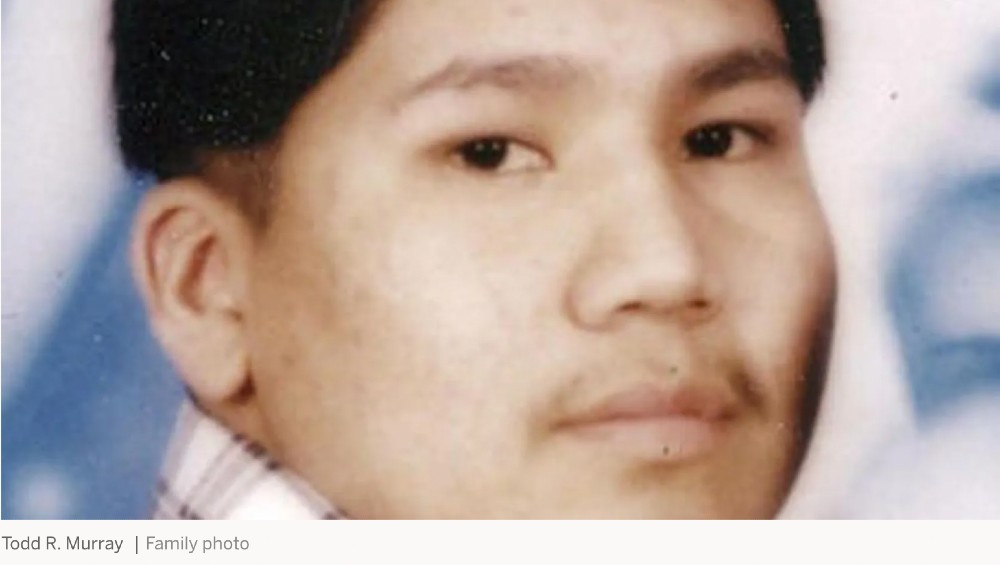
- Details
- By Jenna Kunze
The United States might be held accountable for the death of an Ute Indian Tribal citizen on his reservation in northeast Utah nearly 15 years ago, after the U.S. Court of Appeals for the Federal Circuit in February reversed a dismissal of the case.
On April 1, 2007, 21-year-old Todd Murray was shot to death on the Uintah and Ouray Reservation. The circumstances of his death are in dispute, according to court documents. While Murray’s parents say he was shot by an off-duty local police officer, the accused officer says that Murray shot himself.
Want more Native News? Get the free daily newsletter today.
Records show that Federal Bureau of Investigation agents arrived on the scene after the ambulance left with Murray. “The FBI had jurisdiction to investigate the incident because it has exclusive jurisdiction to investigate incidents on the reservation involving non-tribal law enforcement officers,” according to the Federal Circuit’s opinion briefing. The agent collected the bullets from the gun, but did not perform any testing on the firearm or on the police officer’s clothing.
Murray’s parents argue that the United States’ failure to properly maintain and collect evidence surrounding their son’s death makes it impossible to determine who is responsible.
They filed a federal civil-rights suit against the Utah state officers involved in their son’s death, but it was dismissed because there wasn’t enough evidence. As a result, the Murrays filed a different lawsuit in the Court of Federal Claims—this time relying on the “bad men” clause in the 1868 treaty between the United States and the Ute Indian Tribe. The “bad men'' clause allows tribal members to sue the United States for damages that have been caused by “bad men among the whites” who “commit any wrong” on their reservation.
“On April 1, 2007 and at every step since then, state and federal officers failed to treat my son and my family with respect which should be due to any person, regardless of race or ethnicity. We are grateful that the Court of Appeals rejected again the FBI’s argument that it does not need to investigate the death of an Indian on his reservation. Instead, the FBI was required to gather the evidence which would have shown what actually happened on April 1, 2007,” Debra Jones, Murray’s mother, said in a statement.
According to the statement, the United States has asserted a multitude of arguments against the Murray family’s suit, including that federal law enforcement officers cannot be deemed “bad men” under the 1868 Treaty.
Shaun Chapoose, chairman of the Ute Indian Tribe, said in a statement that the latest ruling is consequential to every individual member of the Ute Tribe.
“It means that state officers cannot come onto our reservation and injure or kill our tribal members without a federal investigation being conducted,” he said. “It means the FBI cannot sit by idly when our tribal members are injured or killed.”
More Stories Like This
Indian Gaming Association Rallies Broad Coalition Against Sports Event Contracts It Calls Illegal Threat to Tribal SovereigntyNavajo Resources and Development Committee Issues Notice on Livestock Inspection Requirements
American Prairie, Tribal Coalition Files Protest Over Rescinded Grazing Rights
Northern Cheyenne Push Back Against Trump Administration’s Effort to Alter Little Bighorn History
Florida Man Sentenced for Falsely Selling Imported Jewelry as Pueblo Indian–Made
Help us defend tribal sovereignty.
At Native News Online, our mission is rooted in telling the stories that strengthen sovereignty and uplift Indigenous voices — not just at year’s end, but every single day.
Because of your generosity last year, we were able to keep our reporters on the ground in tribal communities, at national gatherings and in the halls of Congress — covering the issues that matter most to Indian Country: sovereignty, culture, education, health and economic opportunity.
That support sustained us through a tough year in 2025. Now, as we look to the year ahead, we need your help right now to ensure warrior journalism remains strong — reporting that defends tribal sovereignty, amplifies Native truth, and holds power accountable.
 The stakes couldn't be higher. Your support keeps Native voices heard, Native stories told and Native sovereignty defended.
The stakes couldn't be higher. Your support keeps Native voices heard, Native stories told and Native sovereignty defended.
Stand with Warrior Journalism today.
Levi Rickert (Potawatomi), Editor & Publisher

